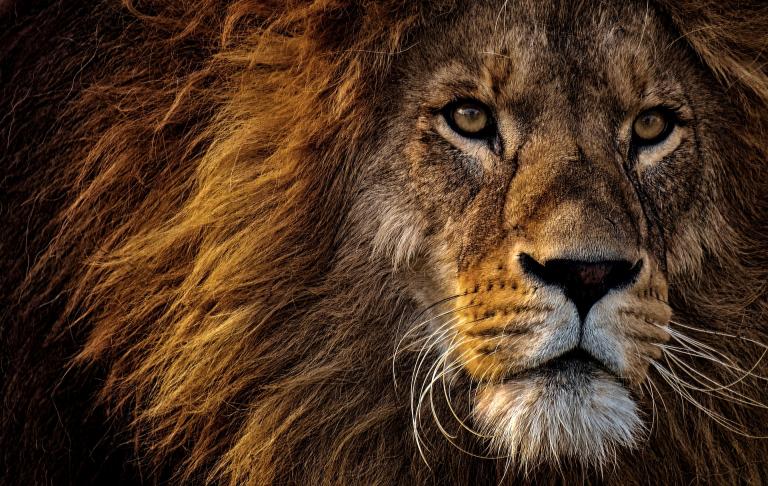By the Rev. Chris Furr

On the surreal day after Donald Trump was elected, I remember looking at everyone I encountered a bit differently—the guys behind the counter in the sandwich shop, the cashier at the grocery store, my neighbor checking his mail. I wondered who they’d voted for, and why. I was studying the ones who looked like me in particular. We had so much in common, but they felt like aliens.
Later, I sat down with my wife and I told her how odd it felt.
“I feel like a lion,” I said. “White men have always been the apex predator, and we have fed our status on people of color, women, the LGBTQ community … but Jesus ruined my appetite.”
“Yes,” she said. “But you still walk the world as a lion. That’s what people see.”
I realized that it was entirely likely that all those people I’d been looking at and wondering about were likely looking at me the same way, with the same assumptions. I realized that folks were assuming things about me I’m doing my best to live beyond. And that my feelings in that moment were secondary to those who were feeling vulnerable in a new way. I understand that should be obvious. But I’m also coming to understand just how much I have to unlearn.

In a moment of cultural reckoning in America, many straight white men are struggling (both consciously and subconsciously) with what #metoo and #whyIdidntreport means for them. Clearly, the trauma is not ours, and what it means for us is not of utmost importance. That we have reached so quickly for how this climate affects men is evidence itself of the culture we live in. As a white male, I assume that I have the right to protection, justice and the presumption of innocence when people who look like us have created a culture in which none of these things are afforded to those we have identified as “other.” In order for the stories of pain and trauma we have silenced for too long to finally be heard with integrity and create change, straight white men will need to come to new ways of seeing themselves. We need a way to see and think that prioritizes compassion and understanding, so that we will not reach for cynicism and defensiveness. My belief is that we will see profound change in our culture with or without the cooperation of straight white men in this moment; my hope, however, is that men who look like me will be partners in this transformation rather than bystanders or outright obstacles. Those who are wondering how need a path forward.
Many other men are not and will not be wrestling with these issues at all, instead continuing down a historical path that has placed the acquisition of power, wealth and opportunity above our neighbors; women, people of color and the LGBTQ community especially. Some predators have no interest in being anything else. In this moment, an articulation of masculinity that is not toxic or subjugating and a grasp of whiteness that is both confessional and liberating for all of us is a necessity. Those who are unwilling to wrestle with the deep roots of these problems we have inherited (and are perpetuating) need provocation. Those who are discerning and compassionate enough to desire to be allies need an articulation of what that looks like. And, perhaps most of all, those whose identities have been degraded in the process of elevating and sustaining the status of straight white men in this country need to hear our confession, our desire for redemption, and a platform to tell us what we need to hear.
What I know from countless conversations about these topics with my peers is that many men desire to be a force for change in their communities, especially the Church; what they are resistant to are the guilt and shame and broad generalizations that come with these conversations, which leave them feeling as if they are being punished for sins they haven’t committed, offered by people who don’t know them or their world. I know many would argue (correctly) that there is irony here; a group resistant to shame and guilt which has historically trafficked in each of those things, without much empathy. But we don’t need men who do and say the right things because that’s what’s expected of them in public, while privately stewing on anger and volatility they don’t know how to deal with—we know how that story ends. We need men who mean it, who have done the work.
We (my straight, white, male peers) need to learn the truth about how we got here; how we have inherited understandings of what it means to be straight, white and male in this culture, how we have learned particular attitudes and behaviors without knowing it was happening, and how they are not only destructive to others, but self-destructive as well. We need to move past resistance to feeling guilty, realizing that this is primarily a self-centered posture that makes it impossible to truly empathize with the other in the way Christ has taught us; and we need to insist on the hope our faith instills, that there is a restorative path forward that will help us break the patterns of use and abuse that have so characterized our life together, even inside the Church.
Our Scriptural story speaks to this time and place; the narrative of sin, redemption and resurrection we have built our lives on has within it the power to help us understand ourselves more completely and equip us as partners with God in the re-making of the world. God’s vision of the peaceable kingdom is one where the vulnerable no longer live in fear; and, it is a world where those whose lives have been dependent on their ability to impose fear are free from that burden as well. The prophet declares: “The wolf also shall dwell with the lamb, and the leopard shall lie down with the kid; and the calf and the young lion and the fatling together.” (Isaiah 11:6. NRSV). May it be so.
The Rev. Chris Furr is Senior Pastor of Covenant Christian Church in Cary, North Carolina. He and his wife, Katie, have two sons.












